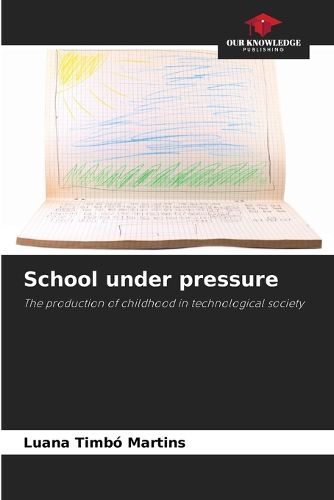Readings Newsletter
Become a Readings Member to make your shopping experience even easier.
Sign in or sign up for free!
You’re not far away from qualifying for FREE standard shipping within Australia
You’ve qualified for FREE standard shipping within Australia
The cart is loading…






This is a paper about technological society and the possible connection that children make between it and their school experience. Technology enhances shifts in childhood. Traditional school organization can clash with what society demands, as they are different ways of presenting the world, involving diverse aspects of affective and cognitive processes. The connection between childhood and school institutions was investigated, addressing contemporary technological society and its possible effects on subjectivity, education, and childhood. Student behaviors consistent with subjectivity in a media/technological society were analyzed. The results show four relevant axes to characterize shifts in modes of subjectivity: learning, concentration, time/space, and effort/pleasure. These results were discussed from the perspective of how children are being educated in relation to the technological world. Children are given a world, but there is a danger of empty empowerment. The role of education is to help this power take a direction, not leaving the youngest lost among superficial information.
$9.00 standard shipping within Australia
FREE standard shipping within Australia for orders over $100.00
Express & International shipping calculated at checkout
This is a paper about technological society and the possible connection that children make between it and their school experience. Technology enhances shifts in childhood. Traditional school organization can clash with what society demands, as they are different ways of presenting the world, involving diverse aspects of affective and cognitive processes. The connection between childhood and school institutions was investigated, addressing contemporary technological society and its possible effects on subjectivity, education, and childhood. Student behaviors consistent with subjectivity in a media/technological society were analyzed. The results show four relevant axes to characterize shifts in modes of subjectivity: learning, concentration, time/space, and effort/pleasure. These results were discussed from the perspective of how children are being educated in relation to the technological world. Children are given a world, but there is a danger of empty empowerment. The role of education is to help this power take a direction, not leaving the youngest lost among superficial information.